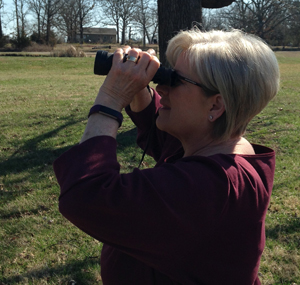
Restored Sight Allows Cornea Recipient to See Nature’s Beauty

“As my vision becomes clearer and clearer I realize that I had forgotten how bright and colorful our world is and I appreciate and love every second of it,” said Pam.
Watching deer graze in the valley and geese land on her pond were just a few of the beautiful sights of nature Pam enjoys at her country home in Lebanon, Mo. Those sights mean more to Pam now than ever before after the hereditary eye disease Fuch’s dystrophy threatened to take her vision away.
“My vision kept getting dimmer and dimmer and glasses just didn’t fix it,” said Pam. “We realized through several tests that it was Fuch’s dystrophy.” As her vision deteriorated, Pam no longer felt safe driving her car because she couldn’t see road signs on the side of the road and was missing important details as she drove. She struggled with daily tasks, began missing out on some her favorite hobbies and even stayed home from family outings because she couldn’t see.

As an avid birdwatcher, Pam is able to see the fine details in feathers and coloring she was missing before her transplant.
As an avid birdwatcher, Pam is able to see the fine details in feathers and coloring she was missing before her transplant.In July of 2016, Pam received a successful cornea transplant at Mattax Neu Prater Surgery Center in Springfield thanks to the generosity of an eye donor. Pam chose to write to her donor family to thank them for their kindness. “Families have felt such a loss but they have helped other people,” said Pam. “I knew they had suffered a loss and just wanted them to know we appreciated the gift. It’s not just that the donor gave but the family accepted and followed through with their wishes.”
Today, Pam has regained her active lifestyle exploring the outdoors and gardening. She and her husband are avid birdwatchers and she is able to see the fine details in feathers and coloring she was missing before her transplant. Pam has regained her independence, driving with confidence again and seeing details when grocery shopping, watching television, reading menus in restaurants and even beading her holiday Christmas balls. More than anything, Pam is able to watch her 6 grandchildren play soccer and their other activities and see the world as they see it.
“As my vision becomes clearer and clearer I realize that I had forgotten how bright and colorful our world is and I appreciate and love every second of it,” said Pam.


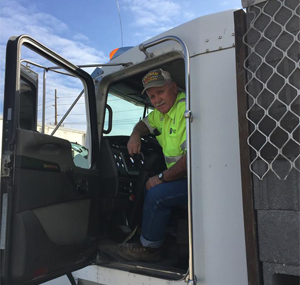

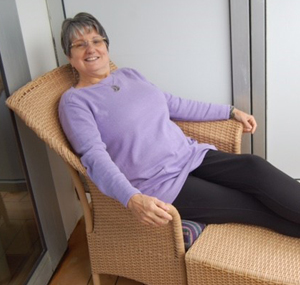
 Hiking over rough terrain and in cold temperatures is worth it to see the beauty of a glacier. On a recent Alaskan cruise from Anchorage to Vancouver, British Columbia, Katie and her husband hiked at Davidson Glacier in Alaska. “We had to hike over rough terrain to get to the glacier. There was a time I was not able to see well enough to hike with confidence. Now that I can see clearly, I feel able to take it on,” said Katie. “Every day I am grateful for my eyesight and the things I can accomplish.”
Hiking over rough terrain and in cold temperatures is worth it to see the beauty of a glacier. On a recent Alaskan cruise from Anchorage to Vancouver, British Columbia, Katie and her husband hiked at Davidson Glacier in Alaska. “We had to hike over rough terrain to get to the glacier. There was a time I was not able to see well enough to hike with confidence. Now that I can see clearly, I feel able to take it on,” said Katie. “Every day I am grateful for my eyesight and the things I can accomplish.”

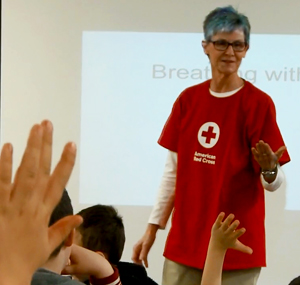
 For over 30 years, Barbara has made a difference in the lives of her students, first as an elementary public school teacher and later at the university level where she trained elementary, early childhood and special education educators to teach children at the most important times of development. At the heart of all she does is a passion for learning and education. Barbara is also an avid Mah Jongg player, enjoys making jewelry and loves to read. Now retired, Barbara continues to change lives by teaching university courses online and through her volunteerism with the American Red Cross.
For over 30 years, Barbara has made a difference in the lives of her students, first as an elementary public school teacher and later at the university level where she trained elementary, early childhood and special education educators to teach children at the most important times of development. At the heart of all she does is a passion for learning and education. Barbara is also an avid Mah Jongg player, enjoys making jewelry and loves to read. Now retired, Barbara continues to change lives by teaching university courses online and through her volunteerism with the American Red Cross.
 When Barbara was in her early 40s, her ophthalmologist identified that she had Fuchs’ dystrophy. Her doctors monitored the deterioration until it progressed to the point she needed a transplant. Barbara had an endothelia keratoplasty on her left eye in March 2015 and on her right eye in August 2015. An endothelial transplant replaces the deeper layers of the cornea and does not require stitches. Her transplants were both successful and Barbara is recovering well.
When Barbara was in her early 40s, her ophthalmologist identified that she had Fuchs’ dystrophy. Her doctors monitored the deterioration until it progressed to the point she needed a transplant. Barbara had an endothelia keratoplasty on her left eye in March 2015 and on her right eye in August 2015. An endothelial transplant replaces the deeper layers of the cornea and does not require stitches. Her transplants were both successful and Barbara is recovering well.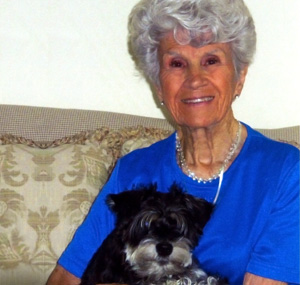

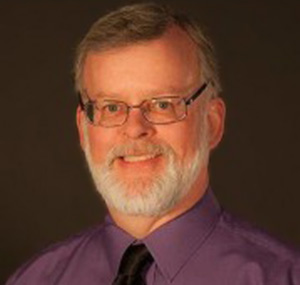
 As a manager, husband, father and grandfather, Steve was missing out on seeing many things in life. As his vision worsened, he thought he might need a stronger prescription. When Steve went to the eye doctor in 2012, they determined he had an eye condition called Fuchs’ corneal dystrophy.
As a manager, husband, father and grandfather, Steve was missing out on seeing many things in life. As his vision worsened, he thought he might need a stronger prescription. When Steve went to the eye doctor in 2012, they determined he had an eye condition called Fuchs’ corneal dystrophy.